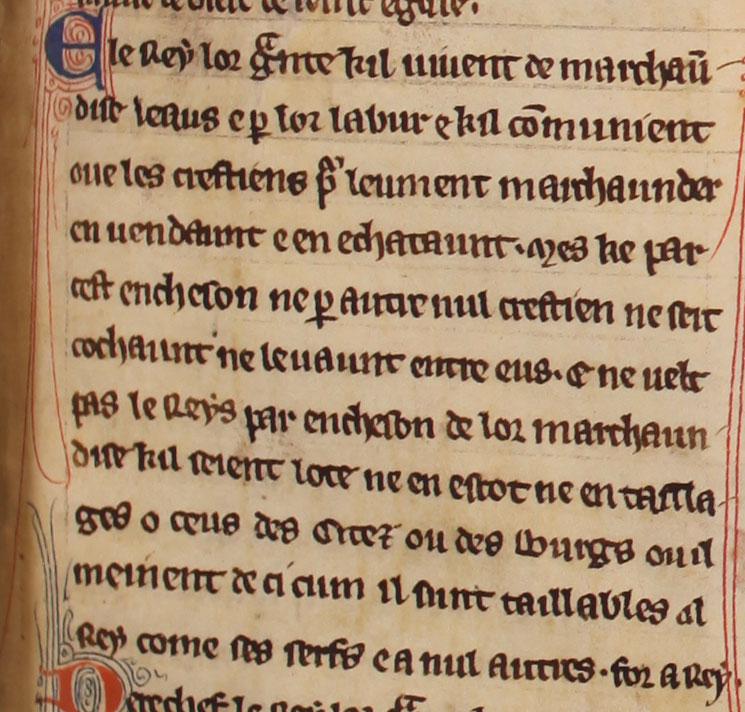
Extract (c) of the Statute of Jewry, c. 1275. Catalogue ref: E 164/9, fol. 31d.
Anglo-Norman Transcript
E le Rey lor g[aeg]nte kil vivent de marchaundies leaus e p[ro] lor labur e kil co’munient ove les Crestiens p[re] leument marchaunder en endaunt e en echataunt. Mes ke par cest encheson ne p[ro] autre nul Crestien ne seit cochaunt ne levaunt entre eus. E ne velt pas le Reys par encheson de lor merchandise kil seient lote ne en escot ne en talliages o ceus des Citez ou des Burgs ou il eminent de ci cum il sunt taillables al Rey come ses serfs e a nul autres, for a Rey […]
Simplified Translation
And the king grants to Jews that may earn their living by lawful merchandise and labour; and that they may interact with Christians in order to lawfully trade by buying and selling. But other than this, no Christian should mix with Jewish individuals. And the king wills that they [Jews] shall not by reason of their merchandise be put to scot or lot*, not in taxes with the men of the cities and boroughs where they live; for that they are taxable to the king and to no other but the king […]
*Scot or Lot – This is a phrase common in the records of English medieval boroughs (towns/districts) that refers to a tax paid to the borough for local or national purposes.
Read Extract (c) of the Statute of Jewry, c. 1275 and consider the accompanying questions:
- What does the king suggest Jews do to earn a living?
- How does the king feel about Christians mixing with Jews?
- What does the Statute order in regards to the taxation of Jews?
- After reading all three extracts, what do you think the impact of this statute was on England’s Jewish community? Explain your answer with reference to the extracts.
